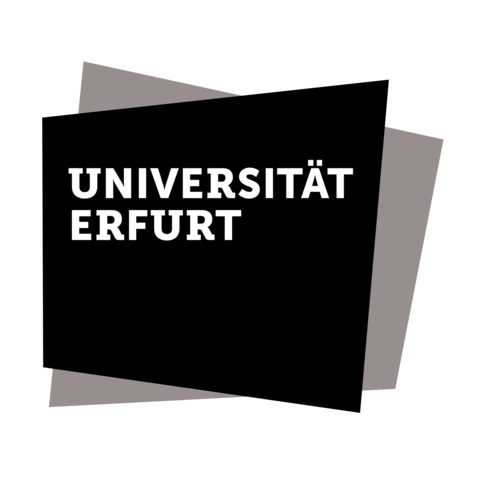In the area of media-enhanced examinations, the eTeach network aims to create a comprehensive reservoir of knowledge about digital examination formats and the integration of artificial intelligence into examination practices at Thuringian universities, to actively share this knowledge in the community and to continuously develop it further. The aim is to support teaching staff and university management in an advisory capacity and to enable them to make effective use of the potential of digital media in examination scenarios.
Your contacts for this topic
-
Uwe Cämmerer-Seibel
Management eTeach Network Thuringia
-
+49(0)3643/581282
-
uwe.caemmerer-seibel@uni-weimar.de
Positions and offers on the topic
The position of the eTeach network
The eTeach network is initially creating a common basis for this subject area. This includes creating a glossary of the most important terms and developing a self-study course that teaches the basics. Furthermore, a comprehensive overview of existing examination systems, their support services and the relevant legal framework will be compiled and regularly updated. A survey of teaching staff will provide additional insights into the current needs and challenges in the area of media-enhanced testing. In addition, the formulation of suitable tasks will be addressed that enable the effective creation and automated evaluation of adaptive tasks and quizzes for both formative and summative testing. Furthermore, recommendations for the use of AI tools in testing will be developed, including practical handouts and specialized training courses. These measures will lead to the development of new, innovative examination formats using AI tools.
In the network, the following issues are being addressed in a cross-university working group in order to ensure effective and ethical integration of AI into examination practice at Thuringian universities:
- How can the acceptance and understanding of AI-supported examinations be promoted among teachers, students and other stakeholders?
- How can AI tools be efficiently and effectively integrated into daily teaching practice?
- What legal, technical and infrastructural requirements are necessary for this?
- What ethical guidelines need to be established for the use of AI in examinations?
- How can new challenges arising from the use of AI in audits, such as the identification of attempted fraud, be effectively addressed?
- How can we ensure that the assessments performed by AI systems are fair and free from bias?
These key questions are intended to serve as a basis for structuring the discussions and activities of the cross-university working group and to promote the responsible, ethical and didactically sensible use of AI in university examinations.
Advice and further training for teaching staff form a key pillar of our approach. Here, we promote the exchange between colleagues on digital examination concepts. We present examples of good practice that illustrate how media-enhanced examinations can be successfully implemented in the age of AI. These examples serve as inspiration and guidance for teachers who want to integrate digital media into their examination practices. Through these multi-layered approaches, we strive to sustainably improve the quality and efficiency of higher education in the age of digitalization.
Current projects in the topic
Glossary
Ideas and goals
The glossary is a tool dedicated to the task of exploring and explaining the many facets of media-enhanced testing in higher education. The terminology and definitions of individual universities differ significantly, particularly when it comes to electronic examination formats. The glossary aims to standardize relevant terms, including comprehensive explanations and references to related terms. It thus contributes to a common understanding of examination practices - which applies equally to tried-and-tested and new approaches.
Our glossary is aimed at anyone who is interested in the design and implementation of examinations in higher education, regardless of their level of experience or subject culture.
Current status:
- runs
Participants in and around the network

Uwe Cämmerer-Seibel
Contact person
Management of the eTeach network Thuringia
Current results
Downloads
- Download 1
- Download 2
- Download 3
Links
- Link 1
- Link 2
- Link 3
Collection of materials
- Collection 1
- Collection 2
- Collection 3
Survey on examination culture
Ideas and goals
Survey: Based on a survey of teachers and students on examination culture, best practice examples from the Thuringian community are also made visible here.
Participants in and around the network

Christina Otto
Contact person
Contact point at the Friedrich Schiller University Jena

Petra Lepetit
Contact person
Contact point at the Ernst Abbe University of Applied Sciences Jena
Current status:
- runs
Current results
Downloads
- Download 1
- Download 2
- Download 3
Links
- Link 1
- Link 2
- Link 3
Collection of materials
- Collection 1
- Collection 2
- Collection 3
Qualification
Ideas and goals
Existing qualifying Further training on formative and summative eExams are already firmly established in the eTeach network portfolio. Building on this, a self-study course for teachers is being created as part of the project.
In addition, teachers are provided with suitable tasks that are specifically designed to make both formative and summative examinations more effective and efficient. The main aim is to provide teachers with the tools they need to create tasks that not only accurately record students' learning progress, but also enable quick and automated evaluation. This is to be achieved through the development of adaptive tasks and quizzes.
Participants in and around the network

Uwe Cämmerer-Seibel
Contact person
Management in the eTeach network
Current status:
- runs
Current results
Downloads
- Download 1
- Download 2
- Download 3
Links
- Link 1
- Link 2
- Link 3
Collection of materials
- Collection 1
- Collection 2
- Collection 3
Testing and AI
Ideas and goals
- Handout: Recommendations for dealing with AI
- Publication Website
- Workshop/course for teachers
Participants in and around the network

Martina Gerhardt
Contact person
Contact point at the Gera-Eisenach Cooperative State University

Christina Otto
Contact person
Contact point at the Friedrich Schiller University Jena
Current status:
- runs
Current results
Downloads
- Download 1
- Download 2
- Download 3
Links
- Link 1
- Link 2
- Link 3
Collection of materials
- Collection 1
- Collection 2
- Collection 3
Ideas and goals
The glossary is a tool dedicated to the task of exploring and explaining the many facets of media-enhanced testing in higher education. The terminology and definitions of individual universities differ significantly, particularly when it comes to electronic examination formats. The glossary aims to standardize relevant terms, including comprehensive explanations and references to related terms. It thus contributes to a common understanding of examination practices - which applies equally to tried-and-tested and new approaches.
Our glossary is aimed at anyone who is interested in the design and implementation of examinations in higher education, regardless of their level of experience or subject culture.
Current status:
- runs
Participants in and around the network

Uwe Cämmerer-Seibel
Contact person
Management of the eTeach network Thuringia
Current results
Downloads
- Download 1
- Download 2
- Download 3
Links
- Link 1
- Link 2
- Link 3
Collection of materials
- Collection 1
- Collection 2
- Collection 3
Ideas and goals
Survey: Based on a survey of teachers and students on examination culture, best practice examples from the Thuringian community are also made visible here.
Participants in and around the network

Christina Otto
Contact person
Contact point at the Friedrich Schiller University Jena

Petra Lepetit
Contact person
Contact point at the Ernst Abbe University of Applied Sciences Jena
Current status:
- runs
Current results
Downloads
- Download 1
- Download 2
- Download 3
Links
- Link 1
- Link 2
- Link 3
Collection of materials
- Collection 1
- Collection 2
- Collection 3
Ideas and goals
Existing qualifying Further training on formative and summative eExams are already firmly established in the eTeach network portfolio. Building on this, a self-study course for teachers is being created as part of the project.
In addition, teachers are provided with suitable tasks that are specifically designed to make both formative and summative examinations more effective and efficient. The main aim is to provide teachers with the tools they need to create tasks that not only accurately record students' learning progress, but also enable quick and automated evaluation. This is to be achieved through the development of adaptive tasks and quizzes.
Participants in and around the network

Uwe Cämmerer-Seibel
Contact person
Management in the eTeach network
Current status:
- runs
Current results
Downloads
- Download 1
- Download 2
- Download 3
Links
- Link 1
- Link 2
- Link 3
Collection of materials
- Collection 1
- Collection 2
- Collection 3
Ideas and goals
- Handout: Recommendations for dealing with AI
- Publication Website
- Workshop/course for teachers
Participants in and around the network

Martina Gerhardt
Contact person
Contact point at the Gera-Eisenach Cooperative State University

Christina Otto
Contact person
Contact point at the Friedrich Schiller University Jena
Current status:
- runs
Current results
Downloads
- Download 1
- Download 2
- Download 3
Links
- Link 1
- Link 2
- Link 3
Collection of materials
- Collection 1
- Collection 2
- Collection 3
